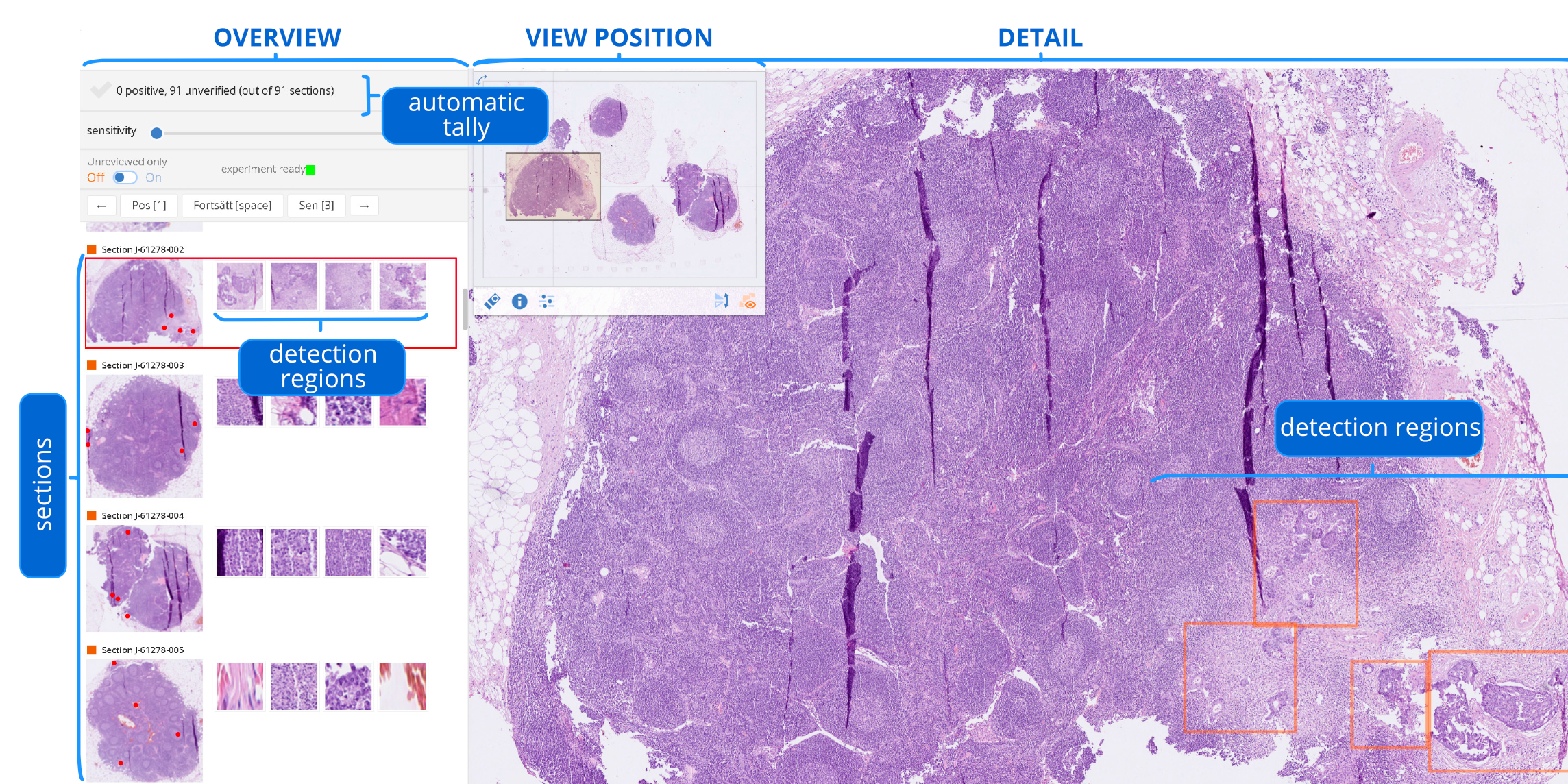
Abstract
Designing useful human-AI interaction for clinical workflows remains challenging despite the impressive performance of recent AI models. One specific difficulty is a lack of successful examples demonstrating how to achieve safe and efficient workflows while mitigating AI imperfections. In this paper, we present an interactive AI-powered visual search tool that supports pathologists in cancer assessments. Our evaluation with six pathologists demonstrates that it can 1) reduce time needed with maintained quality, 2) build user trust progressively, and 3) learn and improve from use. We describe our iterative design process, model development, and key features. Through interviews, design choices are related to the overall user experience. Implications for future human-AI interaction design are discussed with respect to trust, explanations, learning from use, and collaboration strategies.
Citation
Martin Lindvall,
Claes Lundström,
Rapid Assisted Visual Search: Supporting digital pathologists with imperfect AI
Proc. Int. Conf. Intelligent User Interfaces (IUI '21), 504-513, doi:10.1145/3397481.3450681, 2021.
Acknowledgements
We wish to thank Gordan Maras, M.D., without whom this project would not have been possible. The study was financially supported by the Wallenberg AI, Autonomous Systems and Software Program (WASP).}